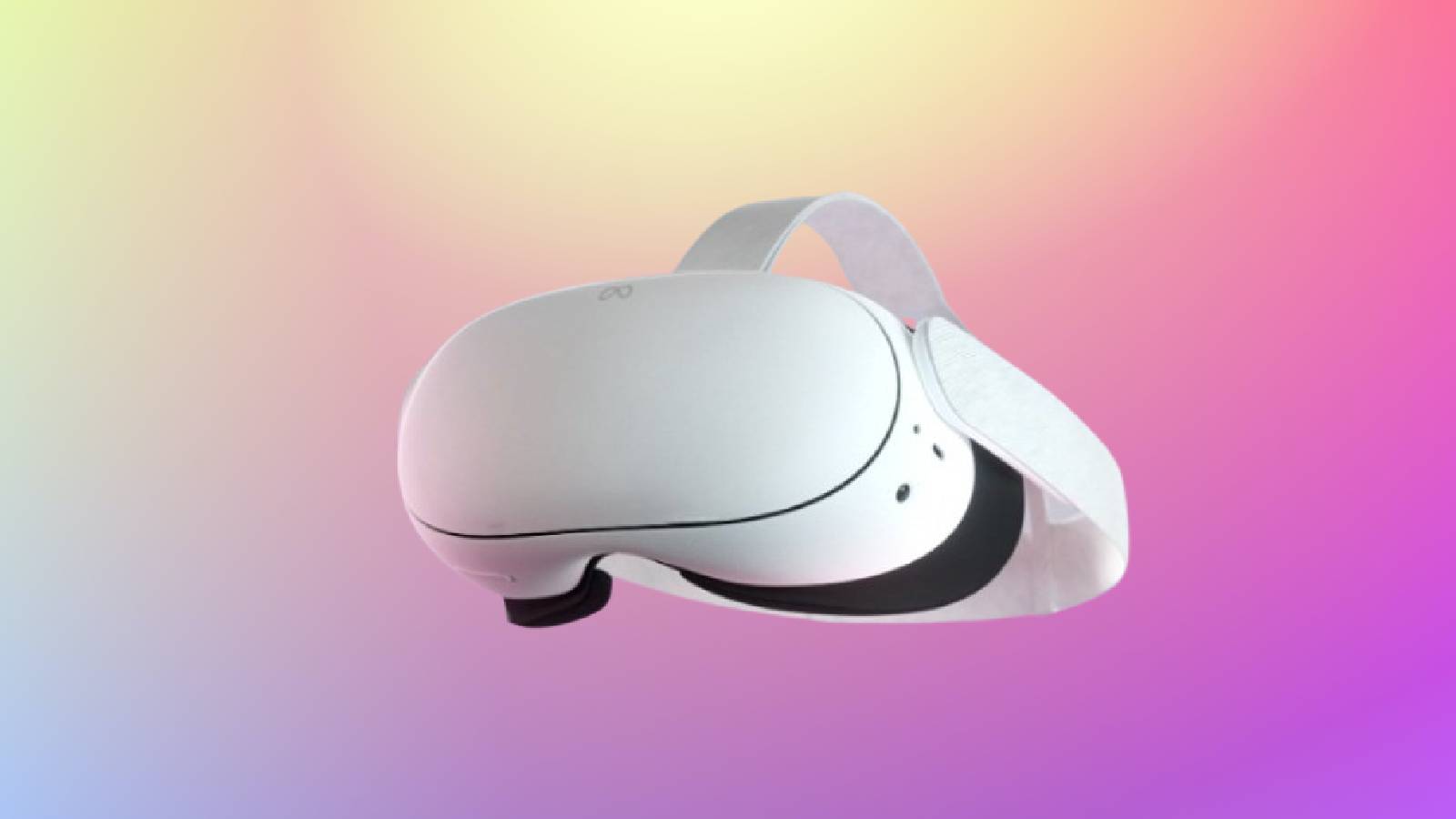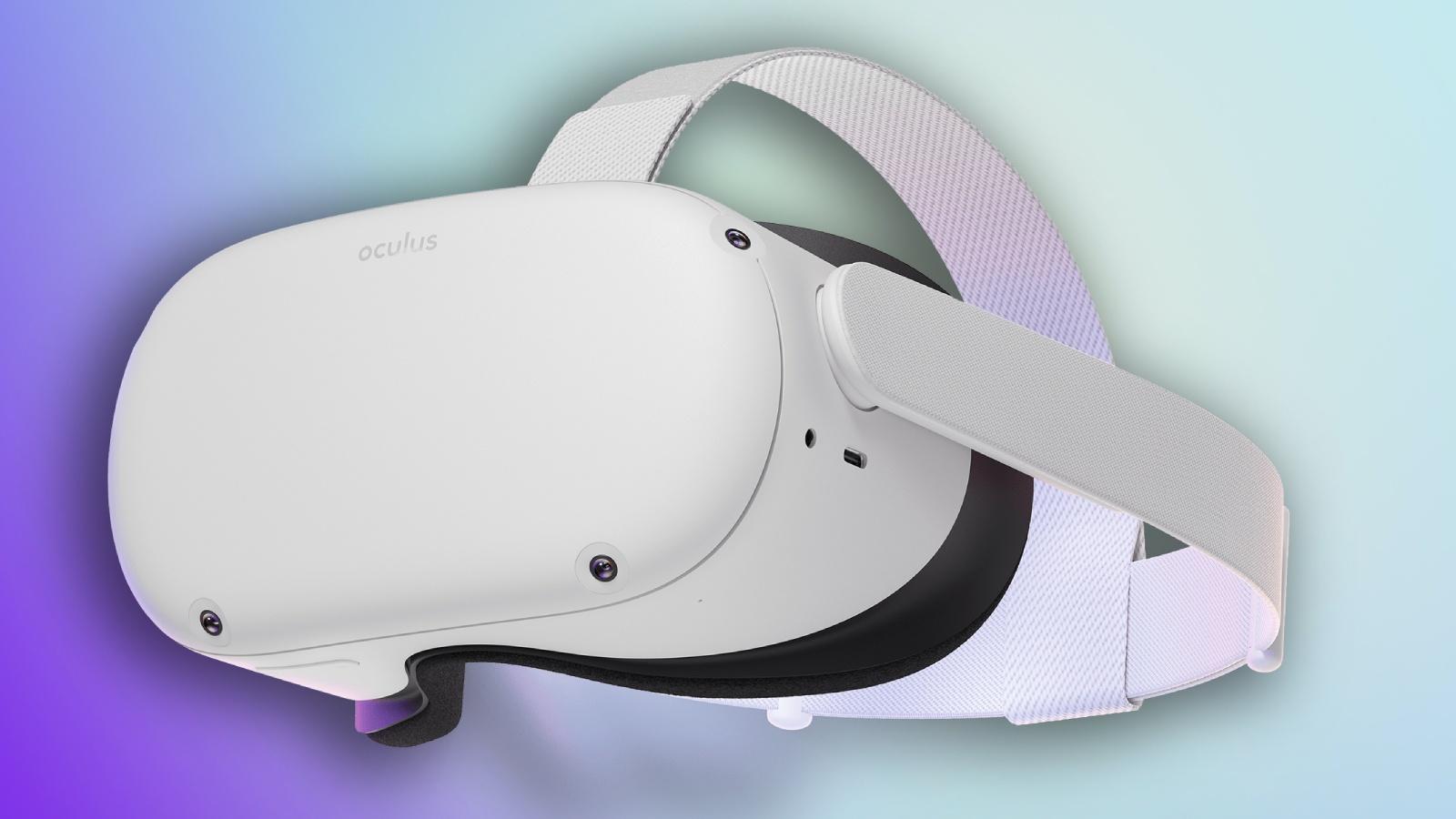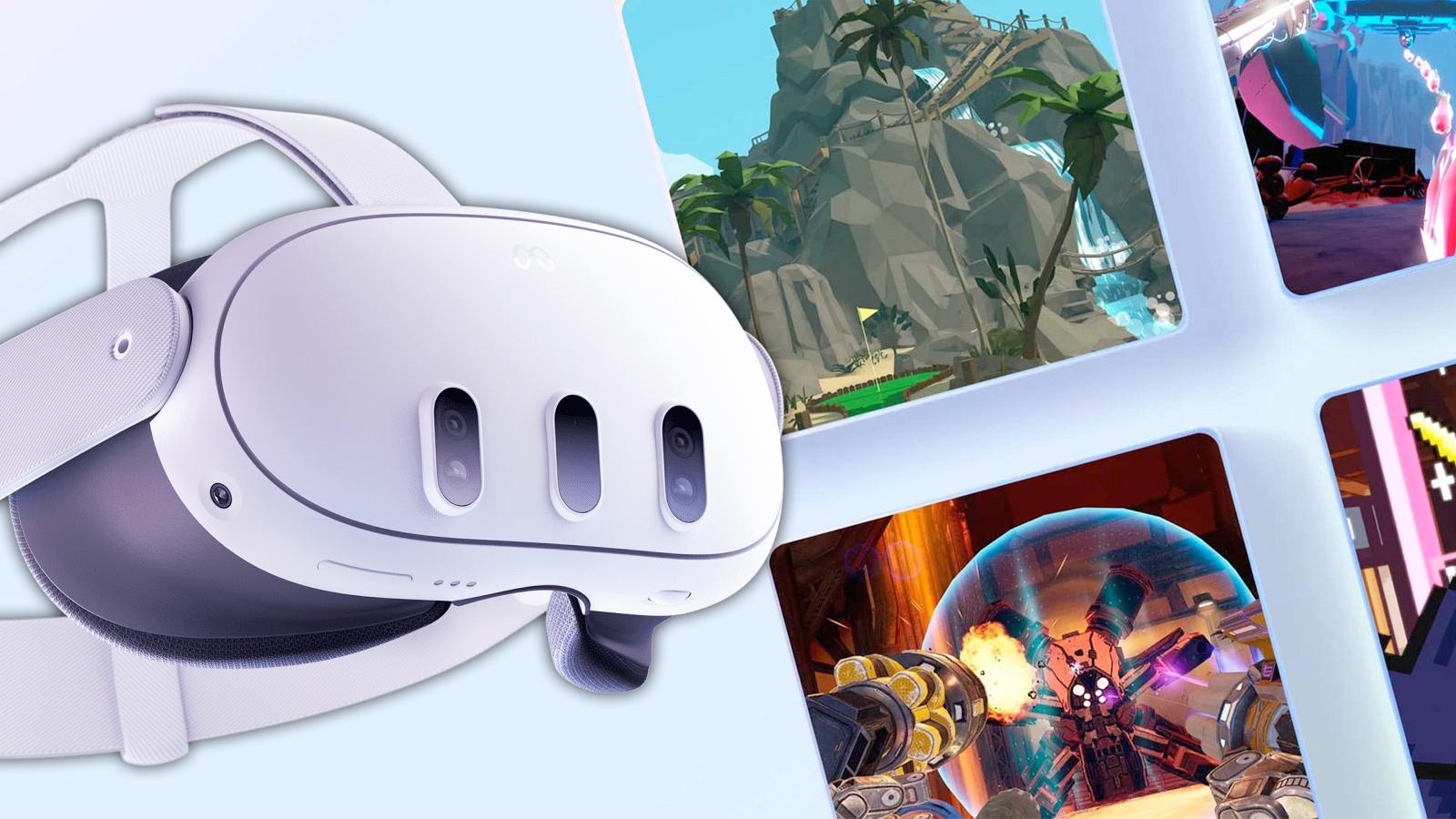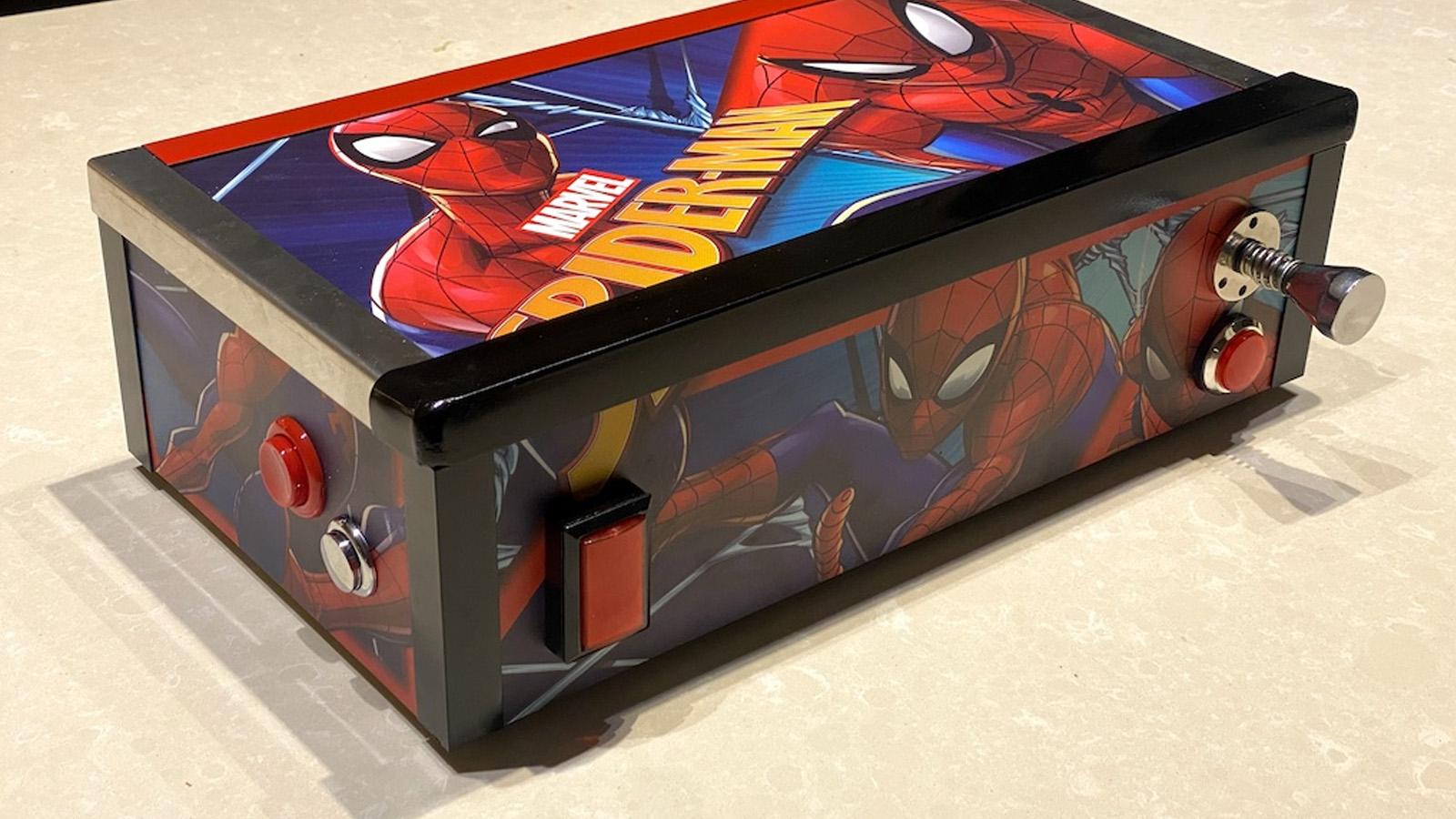Meta Quest Pro vs Meta Quest 3: Which one is better?
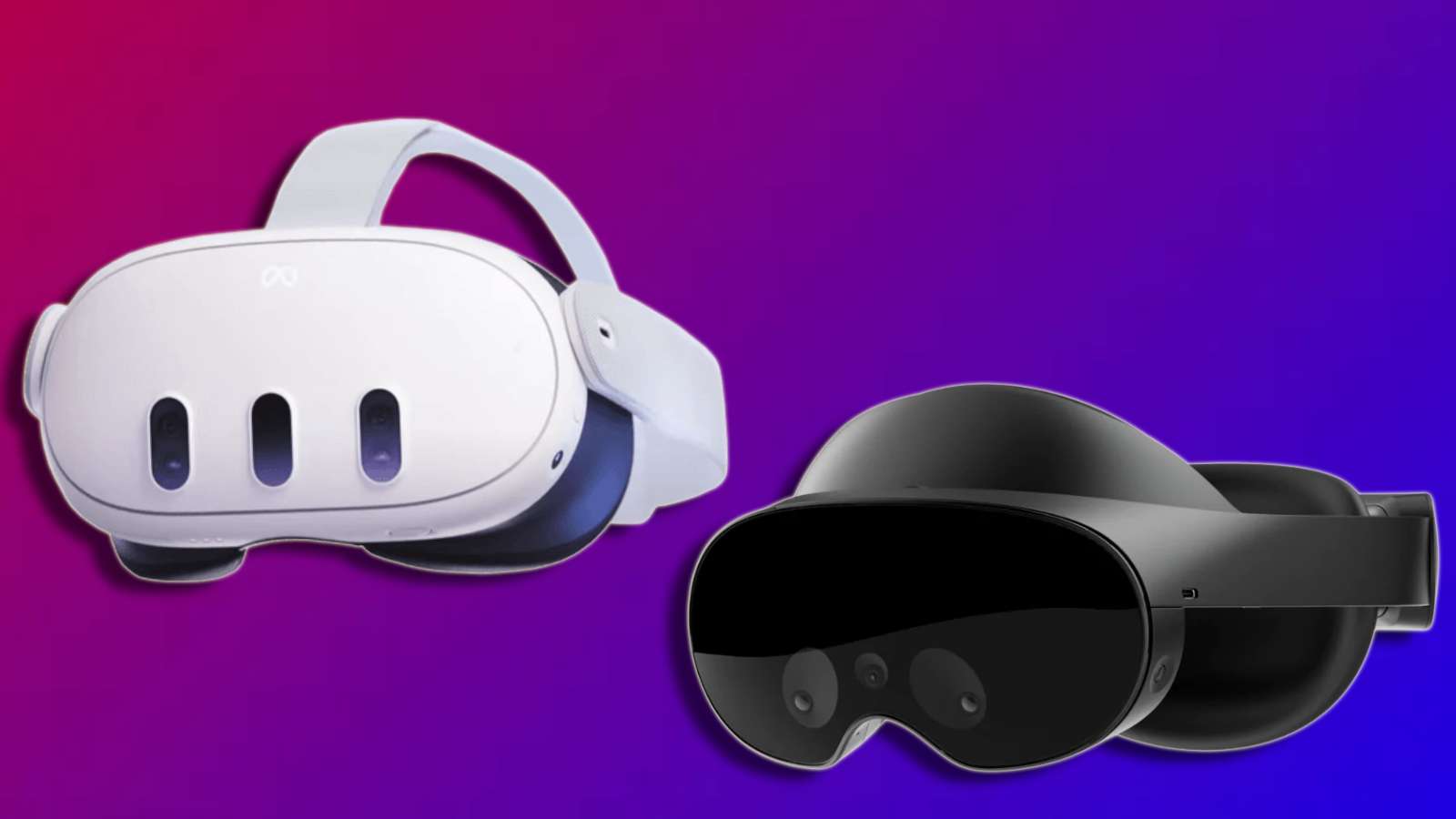 Dexerto
DexertoMeta Quest Pro vs Meta Quest 3
Are you confused between Meta Quest Pro vs Quest 3? Fret not. This detailed guide helps you pick the best Meta VR headset.
Thanks to its acquisition of Oculus back in 2014, Meta has become a pioneer in the world of virtual reality, and makes some of the best VR headsets available on the market.
The new Meta Quest 3 is another example of Meta’s prowess in virtual reality. While it succeeds the entry-level Quest 2, it takes on the premium Meta Quest Pro.
When pitting Quest Pro vs Quest 3, even though Quest 3 is way cheaper, it can outdo the flagship Quest Pro in various aspects. Yet, picking a clear winner out of the two is more challenging than it seems.
The Quest Pro was designed for Pro users and ranked among the most powerful standalone Mixed Reality headsets.
This is why we’ve compared the two VR headsets and feel that the Quest 3 is a better value for money for most users. This detailed comparison tells you why we think so.
Price
- Meta Quest 3 Price: $499 (128GB) or $649 (512GB)
- Meta Quest Pro Price: $999.99
The Quest 3, like the Quest 2, has been introduced at an affordable price point. It starts at $499 for the 128GB variant, while the 512GB variant is priced at $649. The Meta Quest 3 will start retailing from October 10 onwards.
The Quest Pro was introduced at a premium price point of $1499.99. However, it was reduced to $999.99, making this professional-grade mixed-reality headset slightly more affordable.
There is a massive difference in the price of these two headsets, which their target user base could explain. The Quest 3 is aimed at MR/VR enthusiasts and casual users. The Quest Pro was always meant for Pro users as it came with bleeding-edge tech, not on many other headsets.
Specifications
| Meta Quest 3 | Meta Quest Pro | |
| SoC | Qualcomm Snapdragon XR2 Gen 2 | Qualcomm Snapdragon XR2+ |
| Resolution (Per-eye) | 2064 × 2208 | 1800×1920 |
| Display type | LCD | LCD |
| Refresh rate | 120Hz | 72Hz – 90Hz |
| Field of view | 110-degrees horizontal/92-degrees vertical | 106 degrees |
| Lenses | Pancake | Pancake |
| Features | Hand tracking, PC compatibility, Voice commands, Wireless, Mixed reality | Hand tracking, PC compatibility, Voice commands, Wireless, Mixed reality |
| Controllers | Touch Plus controllers | Meta Quest Touch Pro controllers |
| Weight | 513g | 722g |
| Price | $499 | $999.99 |
The base variant of Quest 3 ships with 128GB of onboard storage, while the top-end variant has 512GB of onboard storage. The Quest Pro, however, comes in a sole variant and ships with 256GB storage out of the box.
The Quest 3 has a new Qualcomm Snapdragon XR2 Gen 2 SoC under the hood. This is a new chipset that boasts improved performance over the Queest 2. The Quest Pro, on the other hand, has a powerful and proven Qualcomm Snapdragon XR2+ chipset. This is known for its raw processing prowess and power efficiency. We will have to wait for the head-to-head performance comparison when we get hold of the Quest 3.
The Quest 3 ships with improved Touch Plus controllers, which do not come with outer tracking rings. These controllers will also ship with TruTouch haptics in the Touch Pro controllers of Quest Pro.
While the Quest 3 is more compact than its predecessor but a few grams heavier. The Quest Pro is already compact, and thanks to its ergonomic design, it’s already very comfortable to wear for long hours.
Both headsets have Pancake-type lenses, though the per-eye resolution seems higher on the Quest 3.
Design
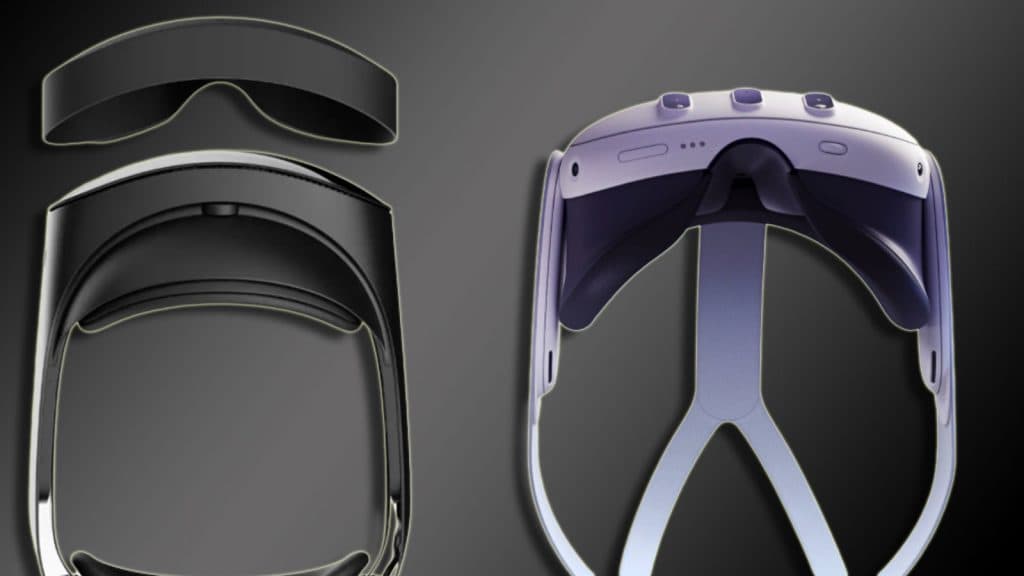 Dexerto
DexertoThe Quest 3’s design is an iterative update to the predecessor and has a plasticky build justified by its retail price. The headset is more compact thanks to the presence of a pancake lens compared to the Quest 2, which was bulkier and had Fresnel lenses.
Thankfully, both headsets have the newer pancake lenses, which allow you to wear your prescription glasses. The Quest Pro is designed to distribute the weight across the head compared to the Quest 3, which seems heavier at the front.
Games
Both headsets will have access to an identical gaming library. While the Quest Pro is a premium headset with a powerful chipset under the hood, the Quest 3 has a new chipset and is expected to come with almost all the “premium” features at a more affordable price. Since Quest 3’s Snapdragon XR2 Gen 2 is more powerful, you should expect your games to run smoother on the newer device.
Even the controllers of the Quest 3 have been upgraded and borrow features from their premium siblings. Both headsets can be connected to the PC and have wireless hand-tracking features, which means they’re also at par.
Which one should you buy?
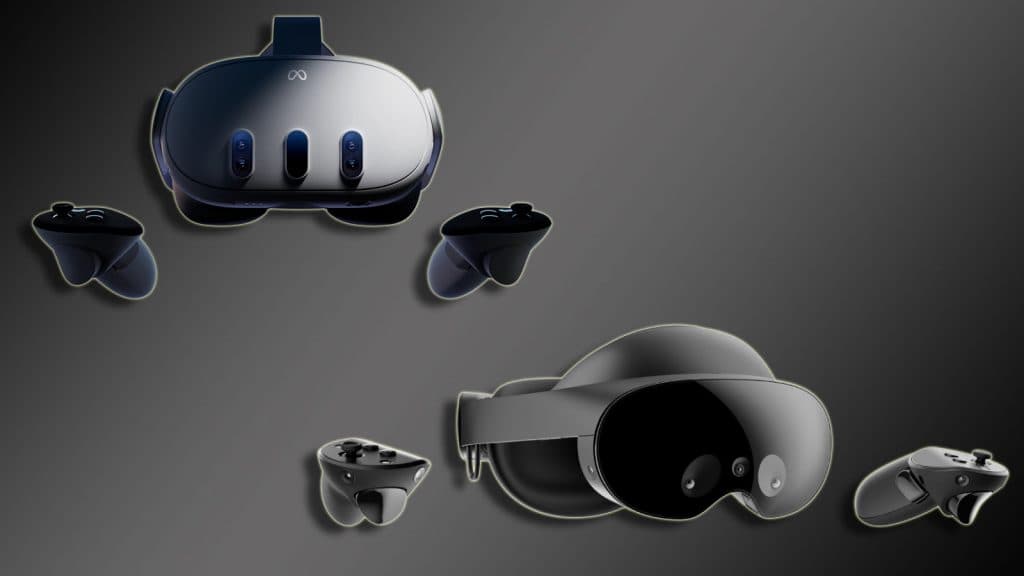 Dexerto
DexertoWhile the Quest Pro is a costlier and premium device, it’s on its way out. Regarding features, both headsets are almost on par, and Meta has democratized the Quest Pro’s premium features to the newer, shinier Quest 3.
The Quest 3 got high marks during our review, proving that the new chipset is compatible with more modern games and applications, making it slightly more practical than the Quest Pro’s older Snapdragon processor.
When it comes to picking up a headset out of the Meta Quest Pro vs Meta Quest 3, getting the Quest 3 makes more sense. It has a new chipset under the hood, can match the full-color passthrough, and, most importantly, is more affordable.
The Quest Pro has also reached the end of its lifecycle, and the company will soon end software support for the headset, which makes investing in this headset a poor choice.
If you click on a product link on this page we may earn a small affiliate commission.
